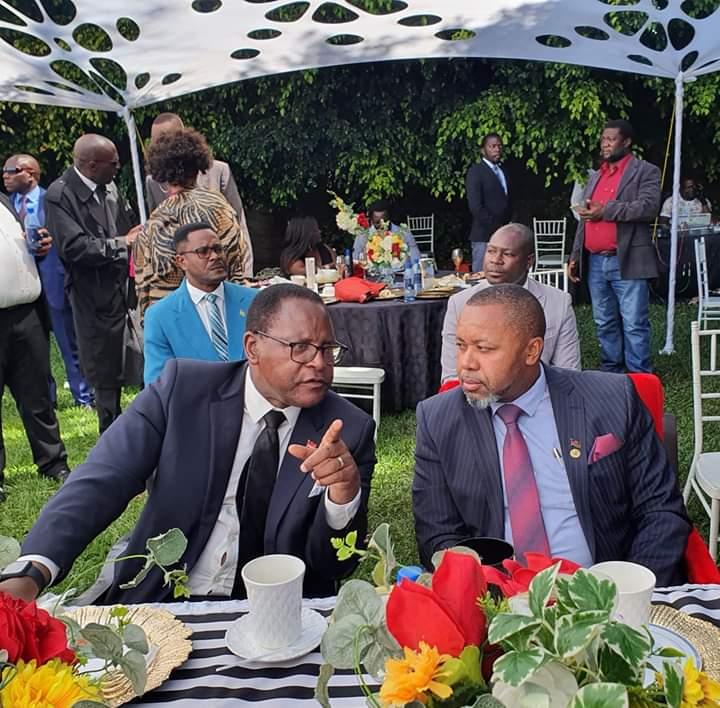Africa-Press – Malawi. After 26 years in the political wilderness, the Malawi Congress Party (MCP) has been rehired. Buoyed by main ally UTM Party and a number of smaller parties, the party, denounced by pro-democracy champion the late Chakufwa Chihana as a “party of death and darkness”, made a strong comeback in last month’s presidential poll.
This was a repeat presidential election after the country’s Constitutional Court annulled the original May 2019 election over rigging allegations. MCP and UTM had challenged the results, accusing electoral commission chair, activist judge Jane Ansah — it’s believed she’s a card-carrying member of the erstwhile ruling party — of favouring President Peter Mutharika’s Democratic People’s Party (DPP).
DPP’s rule was marked by corruption and nepotism, the two vices that defy all rules of fairness since they give some people advantage over others. Through corruption, the collective wealth of a nation is transferred to a few elites who live extremely well while the vast majority wallow in misery.
Fed up with kleptocracy, or rule by thieves, Malawians gave the opposition alliance 58.5 percent of the vote. Supporters of Tonse Alliance, made up MCP, UTM and others, want an end to corruption — since last month’s election, revelations are being made about theft of public money by political leaders and their associates — and nepotism.
But supporters were disappointed when President Lazarus Chakwera on July 8th announced his new cabinet which had in its ranks family members and the son of former President Joyce Banda whose two year rule (2012-2014) was rocked by the worst corruption scandal in the country known as cashgate. About $250m was lost through sham payments to business firms for services that weren’t provided.
Aware it wouldn’t be wise, this early in his presidency, to squander any political capital Chakwera went on the offensive July 10th. He defended his cabinet picks, saying they’d all been vetted thoroughly and are qualified. Turning to his cabinet members who were present, he gave each of them five months to come up with a plan on how they intended to solve problems identified in their respective portfolios.
Was it enough to placate hostile supporters? Hardly.The same day the president spoke, police announced the arrest of Rosa Mbilizi, a lavish spending former executive of Malawi Review Authority. This arrest is in connection with cement worth millions of dollars imported duty free. There’s been another arrest of Mutharika’s bodyguard, Norman Chisale, whom police say helped Mutharika avoid paying about $7 million in import duties for the cement. Mutharika denies knowing anything about it.
Be killed or suicide
While ministers get busy — they must show their boss they know what they are doing in five months — Malawians are debating what they would like to see happen to those found guilty of corruption charges.
A story is told of a young military officer, who was privy to all the corruption deals going on in his country in West Africa since he was the president’s pilot. After deciding enough was enough, he organized fellow soldiers and staged a coup. All top political leaders involved in corruption were rounded up and shot dead. He didn’t hold on to power after the “clean up” and handed it back to civilians.
The action by the young military officer was applauded by his compatriots in the West African country which was at the forefront in the struggle to liberate Africa from colonial rule over six decades ago. A pastor from the country told Counterjab this week: “The corruption and stealing by [the] government was too much. People were suffering, so he gave people hope.”
Some Malawians wish those who’re going to be convicted over graft, should face a similar fate as those in the foregoing discussion. Counterjab understands why people feel that way. We know that because of their selfish actions, teachers and healthcare workers were underpaid, patients died because there were no supplies in hospitals and there was no money to fix some of the important infrastructure in the country.
There was another thing the West African country did after the summary executions of those accused of stealing public money. Here is the pastor again: “They formed the citizens vetting committee which vetted people with high incomes and savings to determine how they got their money. Then they made public servants declare their assets before and after occupying positions.”
Guessed yet where this happened? Ghana. And the military officer? Jerry Rawlings. The moral of the story is that those who stole from Malawians deserve the stiffest punishment allowed under the law. What good is the Forfeiture Act if it can’t be used to recover for Malawians what belongs to them? Besides, the pig-headed thieves who feel entitled must be subjected to the worst humiliation possible and if the pressure is so unbearable that they wish somebody could end it quickly, they shouldn’t be stopped from committing suicide for their actions caused undeserved suffering to innocent children, women and men.
Rejected cornerstone
Marching on, the Chakwera-Chilima team need not reinvent the wheel to solve some of the tough challenges Malawi faces as others have already shown how certain things ought to be done.
Chakwera has reached out to President Paul Kagame of Rwanda who has done admirable things for his country yet this is a country that experienced genocide which claimed an estimated 800,000 people the same year Malawi voted in the first free elections in 1994. Malawi’s neighbor to the north, Tanzania, is another shining example where things are moving in the right direction. Kenya, which is the largest economy in East and Central Africa, has pledged to help Malawi rebuild.
MCP must have felt the pangs of rejection for 26 years, punishment for its authoritarian rule for 30 years since independence from Britain in 1964. But the excesses of the regimes that came after the MCP were off-putting to Malawians and this time around they gave the stone — MCP showed up with UTM and others — another look. Voilà: The rejected stone, ironically, has become the cornerstone which Malawians now want andbelieve will firmly stand against and deliver them from the tyranny of greed.
For More News And Analysis About Malawi Follow Africa-Press






